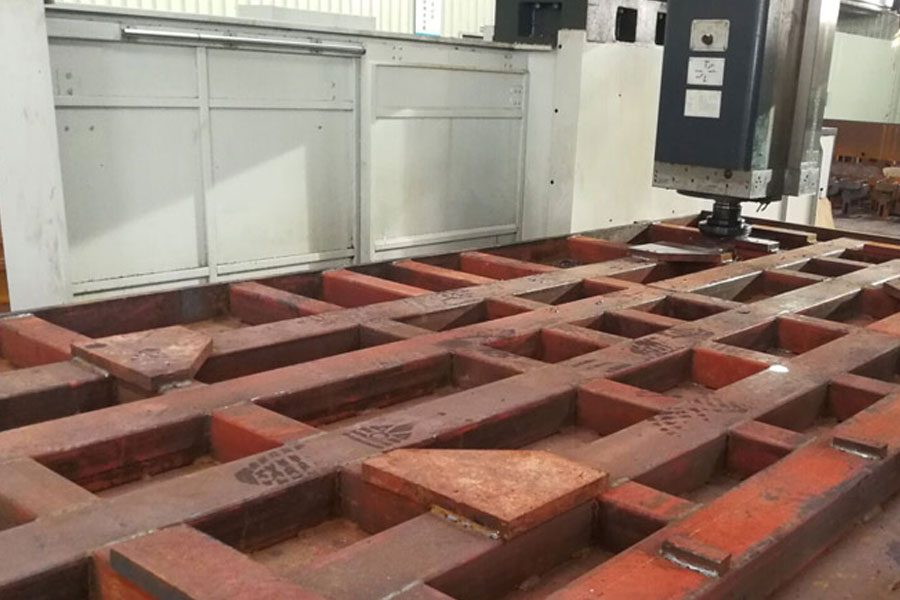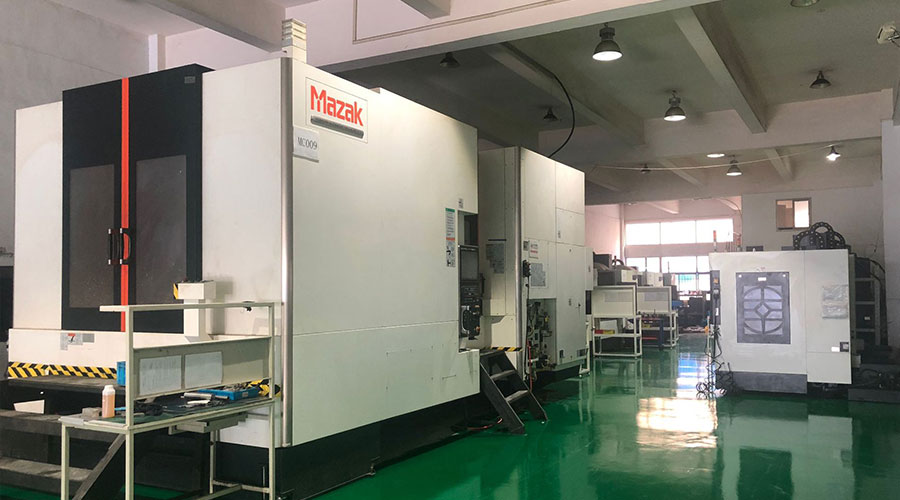In addition to knowing the common types of machining and the classification of commonly used tools for machining equipment, large-scale machining should also understand what materials are commonly used in large-scale machining. Below, Yuntuo Machining will let you know about the commonly used materials and materials for large-scale machining. Its characteristics and uses.

1. Q235A (A3 steel)
Q235A is currently the most commonly used carbon structural steel.
Main features: high plasticity, high toughness, high welding performance, high cold stamping performance, and cold bending performance with a certain strength.
Mainly used in: mechanical parts and welded structural parts that are not demanding, such as tie rods, connecting rods, pins, shafts, screws, nuts, brackets, bases, etc.
2.40Cr
40Cr is currently one of the most widely used alloy structural steels.
Main features: After quenching and tempering, it has good comprehensive mechanical properties, low temperature impact toughness, low notch sensitivity, and good hardenability. Higher strength can be obtained when oil-cooled, and parts are prone to cracks when water-cooled. After tempering or quenching and tempering, the machinability is good, but the weldability is not good, and it is easy to produce cracks.
Mainly used: After quenching and tempering, it is used to manufacture medium-speed moving mechanical parts, such as machine tool gears, shafts, worms, etc. After quenching and tempering and high-frequency surface quenching, it is used to manufacture parts with high surface hardness and wear resistance, such as gears, shafts, spindles, crankshafts, spindles, sleeves, pins, connecting rods, etc. After quenching and tempering at medium temperature, it is used to manufacture heavy-duty, medium-speed moving mechanical parts, such as oil pump rotors, sliders, gears, spindles, etc. After quenching and low-temperature tempering, it is used to manufacture heavy-duty, low-impact, and wear-resistant mechanical parts, such as worms, spindles, and shafts. At the carbonitriding site, transmission parts with larger dimensions and higher low-temperature impact toughness, such as shafts, gears, etc., will be manufactured later.
3.45#
45# is high-quality carbon structural steel, and is currently the most commonly used medium-carbon quenched and tempered steel.
Main features: It has good comprehensive mechanical properties, low hardenability, and cracks are easy to occur during water quenching. The welded parts need to be preheated before welding and annealed after welding.
Mainly used for: manufacturing high-strength mechanical moving parts, such as impellers, pistons, shafts, gears, racks, worms, etc.
4.35#
35# is a common material for various standard parts and fasteners
Main features: moderate strength, good plasticity, high cold plasticity, and good weldability. Low hardenability, use after normalizing or quenching and tempering.
Mainly used for: manufacturing mechanical parts that can withstand larger loads: such as crankshafts, levers, connecting rods, shackles, etc.
5.HT150
HT150 is gray cast iron.
Mainly used for: machine bed, box body, hydraulic cylinder, pump body, valve body, cylinder head, flywheel, pulley, bearing cover, etc.
6.0Cr18Ni9
0Cr18Ni9 is the most commonly used stainless steel material, American steel 304, Japanese steel SUS304.
Mainly used for: food equipment, chemical equipment, and original energy industrial equipment.
7.Cr12
Cr12 is commonly used cold work die steel, American steel grade D3, Japanese steel grade SKD1.
Main features: Good hardenability and wear resistance, poor impact toughness, easy to brittle, and easy to form uneven eutectic carbides.
Mainly used for: manufacturing cold punching dies, punches, blanking dies, cold heading dies, cold extrusion dies, drill sleeves, gauges, wire drawing dies and presses that are subject to less impact load and require high wear resistance. Impression molds, thread rolling boards, deep drawing dies and cold press dies for powder metallurgy, etc.
8.D2
D2 is a kind of high carbon and high chromium cold work steel.
Main features: high hardenability, high hardenability, high wear resistance, high temperature oxidation resistance, good rust resistance after quenching and polishing, and small deformation after heat treatment.
Mainly used for: manufacturing high-precision, long-life cold work molds, cutting tools and measuring tools. Such as stretching dies, cold extrusion dies, etc.
The materials commonly used in large-scale machining include the above 8 types. Only when we understand the characteristics and related uses of these materials, can we better choose the materials needed in large-scale machining and process parts that are more suitable for mechanical equipment.
Link to this article: The Common Materials Analysis Of Large-Scale Machining
Reprint Statement: If there are no special instructions, all articles on this site are original. Please indicate the source for reprinting:https://www.cncmachiningptj.com/
 Sheet metal, Copper Milling, carbon steel,online laser cutting service, 3D printing, precision CNC machining services for heavy equipment, construction, agriculture and hydraulic industries. Suitable for plastics and rare alloys machining. It can turn parts up to 15.7 inches in diameter. Processes include swiss machining,broaching, turning, milling, boring and threading. It also provides metal polishing, painting, surface grinding and shaft straightening services. The production range(include aluminum die casting and zinc die casting) is up to 50,000 pieces. Suitable for screw, coupling, bearing, pump, gearbox housing, drum dryer and rotary feed valve applications.PTJ will strategize with you to provide the most cost-effective services to help you reach your target,Welcome to Contact us ( [email protected] ) directly for your new project.
Sheet metal, Copper Milling, carbon steel,online laser cutting service, 3D printing, precision CNC machining services for heavy equipment, construction, agriculture and hydraulic industries. Suitable for plastics and rare alloys machining. It can turn parts up to 15.7 inches in diameter. Processes include swiss machining,broaching, turning, milling, boring and threading. It also provides metal polishing, painting, surface grinding and shaft straightening services. The production range(include aluminum die casting and zinc die casting) is up to 50,000 pieces. Suitable for screw, coupling, bearing, pump, gearbox housing, drum dryer and rotary feed valve applications.PTJ will strategize with you to provide the most cost-effective services to help you reach your target,Welcome to Contact us ( [email protected] ) directly for your new project.
Link to this article:The Common Materials Analysis Of Large-Scale Machining
Reprint Statement: If there are no special instructions, all articles on this site are original. Please indicate the source for reprinting.:Cut Wiki,Thanks!^^
